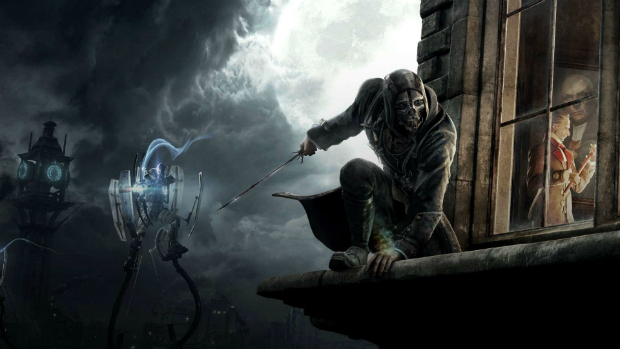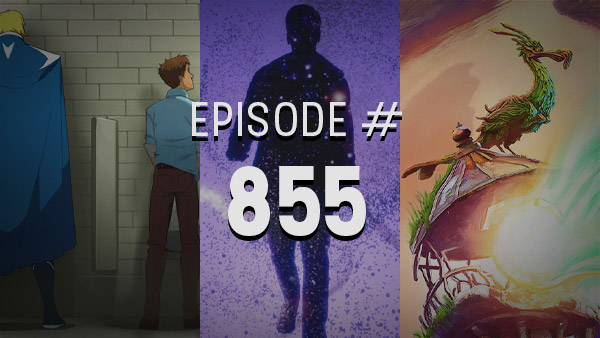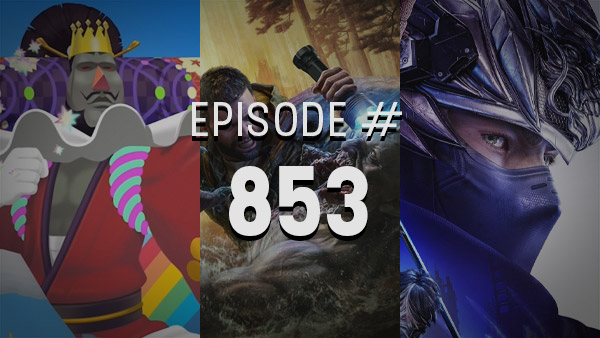Your login information returned multiple users. Please select the user you would like to log in as and re-type in your password.


True stealth gameplay is something that is truly amazing when it is executed well. Sneaking through a semi-open environment and having complete control over your path through dangerous territory is unparalleled in many cases. Splinter Cell, Metal Gear Solid, and more recently, Dishonored, all come to mind as offering truly rewarding stealth gameplay experiences. They not ony put a myriad of awesome tools and abilities in the hands of the player but they offer the player the opportunity to feel something that many games struggle with: true power. Unfortunately, it is here that I often run into the same dilemma over and over again.
Stealth games are typically about more than just being sneaky and taking down targets. More often than not, these games are also character-action games that put a major emphasis on the character you are playing as and the plot that you are trying to progress. As a result, we as players are thrust into the shoes of characters that are perceived as untouchable, deadly, and efficient. This genre is crammed full of James Bonds and Jason Bournes. Agent 47, Sam Fisher, and even Batman are all characters that we have been blessed to control over the years and the feeling I get when inspiring fear or simply outsmarting my foes is intoxicating. My only problem is that this illusion is broken too often by my tendency to reload the game when I make a mistake.
When I play a stealth game, I have a very clear and well defined vision of what kind of character I want to play and what kind of experience I want to have. When I watch a James Bond movie, I enjoy the hell out of it because he rarely makes mistakes and when he does, it is just as fun to watch him get out of trouble. Unfortunately, I think it is this concept that rarely survives the transition to interactive entertainment. Games like Splinter Cell, Metal Gear Solid, and Assassin's Creed go the extra mile to make you feel untouchable only to have that illusion shattered when an alarm is raised. The experience falls into disarray and the gameplay often becomes too frantic to maintain any sense of elegance.
A Cut Above the Rest... Almost
That is not to say that some games have not avoided this issue. Dishonored is certainly the closest I have encountered in years. This is partly because of the freedom the player has to navigate the game world and the freedom that the player has to experiment with the mechanics. As the creative and emergent gameplay is heightened, the less frustrating it becomes to make a mistake. Nothing is quite as satisfying as having to make a split second decision to take a life before blinking out of sight before a group of foes rounds a corner and spots you. Hell, sometimes this leads to an inadvertent distraction that makes accomplishing an objective easier.
With that said, even Dishonored contained its fair share of frustrating moments. Usually these occurred as the result of taking a more non-lethal approach to a mission. The more I tried to spare the lives of patrolling gaurds or high profile targets, the more I found myself reloading my game saves. The merciful mentality that I had at the beginning of Dishonored was eventually shed in the interest of enjoying the experience more. This ultimately cheapened my experience with the game because I felt forced into playing the game in a particular way even though the game offers such a high degree of freedom.
Has this issue affected your enjoyment of stealth games? Does re-loading simply add to your enjoyment of the experience? Which games do you think have captured the spirit of stealth gameplay the best?





Comments
13 years, 1 month ago
The majority of stealth games include a protagonist who excels at sneaking, taking down unaware enemies, and moving around without being detected. The natural drawback is they are fragile, but this is because they are only human, as are you, the player. I've played most stealth games; from Thief to Hitman, Splinter Cell to Assassin's Creed, and most recently Dishonored and Mark of the Ninja. I feel if an alarm is raised in any of these games, it was my own fault and there was a way to prevent it. If I need to reload a save, it it was because I messed up, not the game, so I have no problem reloading as many times until I get it right. I went through Dishonored pure stealth: no kills, no alarms, no detections (also no powers other than Blink). That's pretty much how I handle every stealth game if it allows me to play that way.
I can see your gripe as long as you understand that the characters are fragile because they have no armor, are only human, and traded durability to be covert. Also, Bond does sometimes mess up, but only when he allows his emotions get the best of him. Other than that, he is extremely lucky.
Thief and Thief 2, along with Hitman: Contracts and Hitman: Blood Money are still some of my favorite stealth games. It comes down to being rewarded for patience and approach. I use tools if I have to (for distractions or taking out lights), but there is nothing more satisfying than using wits to complete objectives.
13 years, 1 month ago
I feel like stealth games should involve more fear of being caught, rather than going "Oh, whoops, I'm caught. Now lets shoot/punch my way out of it". I feel like the more defenseless you are, the more rewarding it is to get past an area.
13 years, 1 month ago
I don't think i've ever truly felt "untouchable" in a stealth game. Stealth games are probably the kind of game i enjoy the most out of any genre and i never felt reloading an area i got caught in to lessen my experience. Pulling off that perfect take down without alerting anyone? Beautiful. And if I have to reload my game a few times to do it? I'm alright with that.
13 years, 1 month ago
Hmm this is tough to say its certainly never frustrated me because I never really thought about reloading a save as a problem. Unfortunately I am so used to going back to a previous save state it has become something of a necessary choice for me.
13 years, 1 month ago
I think the saving/checkpointing of a stealth game depends mainly on the tools the game gives you to handle being caught. In the case of Thief, for instance, you're reloading pretty much every time someone sees you. This is because once Garrett gets in a fight he's pretty much dead. Thankfully there's quickload/save buttons, so it's really easy to do.
I thought Dishonored actually gave you items and abilities allowing for a quick escape or knocking out alarmed guards. In this case a saving ability is much less needed, and I think a system of limited saves (a la Hitman) would actually work better for the game.
So yeah, I don't really have a problem with either way to do it as long as it corresponds with the mechanics of the game. There's a lot of variety in the stealth genre, so I can't just write off all the games with a single generalization.
13 years, 1 month ago
I am a bit of a perfectionist. I grew up playing tomb raider and resident evil and reloading my saves every time i messed one thing up, whether it's missing a secret or taking too much damage by a licker or not executing a jump perfectly. Thats why games like this come so naturally to me. I totally get this though. It gets very frustrating having to reload and reload and reload.
13 years, 1 month ago
Thief is a game that makes you feel a badass when you're invisible to your targets and when you need to escape from them when caught. I'm ok with there being alarms in stealth games. I don't see anything wrong with them, seeing as they're just another asset to the genre's gameplay. While other genre's rely on boss fights, the stealth sub-genre is special, seeing as what you want to avoid the most is being seen. To a player who plays a game like Dishonored, their boss fight is that fucking alarm that sounds and they need to find a way to out maneuver and out smart their pursuers. If we didn't have this mechanism of "gotcha!" in stealth games, there wouldn't be much enjoyment in them.